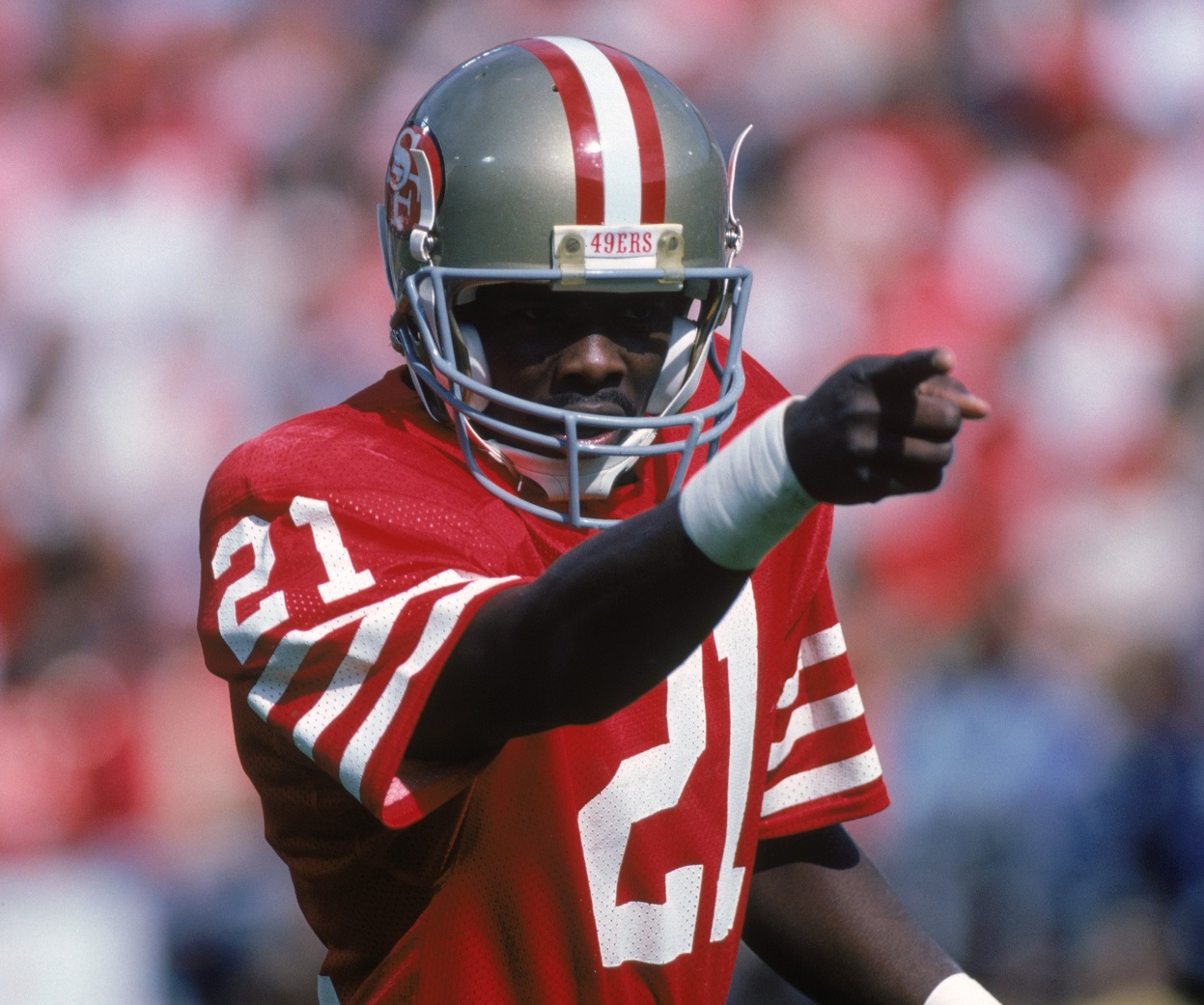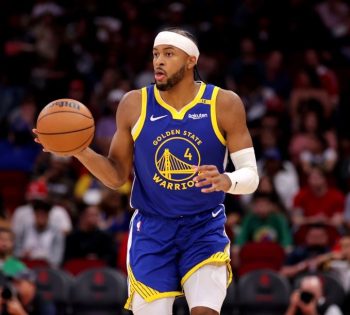NFL
Eric Wright, Not Dwight Clark, Was the 49ers’ Hero Against the Cowboys in the 1981 NFC Championship Game

Think of some of the greatest, most iconic moments in the history of sports, and if you look closely, you realize the guy getting all the credit needed a little help to get the glory.
Sure, Larry Bird Stole the Ball in 1987, but without Dennis Johnson cutting to the basket, the Celtics lose the game anyway.
And while we’re touring the Boston legends, let’s please not forget that, yeah, Dave Roberts Stole the Base in 2004, but without Bill Mueller’s single off Mariano Rivera, he might not have scored the curse-reversing tying run.
These moments are never more instructive than today, Jan. 10, 2022, the 40th anniversary of one of the most iconic moments in NFL history. It is the anniversary of “The Catch,” the remarkable leaping touchdown grab by Dwight Clark from Joe Montana that gave the San Francisco 49ers a 28-27 lead over the Dallas Cowboys in the 1981 NFC Championship Game.
It is the play that has gone down in history as the one that ended the Cowboys dynasty under Tom Landry and launched the Montana-Bill Walsh dynasty that would bring four Super Bowl titles to San Francisco over the course of nine seasons.
But Clark’s catch only gave the 49ers the lead with 51 seconds left. The forgotten hero, but the real hero in those final moments, that man who really sent the 49ers to Super Bowl 16, was cornerback Eric Wright.
The 1981 NFC Championship Game allowed secondary players to become stars

For all the talk of Montana and Clark and the offensive heroics of that final 89-yard touchdown drive, this was a game that put the spotlight on a pair of outstanding rookie defensive backs, one from each team.
Ronnie Lott had seven interceptions as a Pro Bowl rookie for the 49ers in 1981 and would go on to be inducted to the Pro Football Hall of Fame in 2000. On the other side was Cowboys rookie Everson Walls, who led the NFL in interceptions with 11 in 1981 and would also make the Pro Bowl.
And with the Cowboys leading 27-21 with 4:54 left and the 49ers taking over at their own 11-yard line, it appeared Walls had won the rookie battle, having intercepted Montana twice during the game. But it Walls who was memorialized in the worst way possible on the Catch, captured by legendary Sports Illustrated photographer Walter Iooss Jr., reaching in vain for the ball as Clark secures it with his fingertips.
And then it was the other rookie in the secondary on this day, Eric Wright, who made the play that truly launched the 49ers dynasty.
After the Catch, the Cowboys almost had Hail Mary II, but Wright answered 49ers prayers
Roger Staubach had retired after the 1979 season, and his replacement, Danny White was one minute away from etching his name alongside Staubach as the newest Captain Comeback. And though Staubach was gone, the other half of the immortal “Hail Mary” touchdown from the 1975 playoffs, wide receiver Drew Pearson, was ready for his encore.
With 47 seconds left and now trailing by one point, the Cowboys began at their own 25, and on the first play, good ol’ Mary was back in town. White hit Pearson on a crossing route with a perfect pass into a tight window between Lott trailing behind Pearson and Carlton Williamson coming from the opposite side with a diving attempt to knock down the pass.
Instead, Pearson caught the ball in stride at the Cowboys’ 49-yard line and Williamson’s dive took out Lott, leaving Pearson free and clear to race down the middle and score the 75-yard touchdown to win the game for Dallas, 34-28.
“I was running down the field kind of jumping up and down because I thought he was gone,” White told the San Francisco Chronicle years later. “For just a second there, oh yeah, I thought it was over.”
Except …
While Lott and Williamson were between White and Pearson when they collided, Wright was trailing the play behind Pearson. And as the Cowboys receiver gathered the ball and started his sprint to the house, Wright was able to get his right hand inside the back of Pearson’s jersey and haul him down at the 49ers’ 44-yard line with 38 seconds left.
On the next play, with the Cowboys almost in kicker Rafael Septien’s field-goal range, White was hit by Lawrence Pillers as he started to throw the ball and the fumble was recovered by Jim Stuckey. Game over.
“The people that really know 49ers football tell me if you hadn’t made that play there, there wouldn’t have been The Catch,” Wright told the Chronicle. “It makes me feel really good that a few people do remember. The Catch was a huge play, but that’s the reason it’s a team sport. We needed everyone to win that game.”
Under different rules, the Cowboys win the 1981 NFC Championship Game … twice
For a franchise so accustomed to pulling out late-game miracles, the loss to the 49ers had a crippling effect on the Cowboys. They would return to a third straight NFC Championship for the third year in a row in 1982, but suffered a third straight loss, this time to Washington. Landry and White would not get this far again.
It would not be until a decade later, under new owner Jerry Jones, coach Jimmy Johnson and quarterback Troy Aikman, that the Cowboys would exact revenge and beat the 49ers in successive NFC Championship Games to win another pair of Super Bowls.
And had the 1981 game been played in different eras, with two critically different sets of rules, the Cowboys would have beaten the 49ers that January day at Candlestick Park.
For one, Wright’s horse-collar tackle would have been flagged as a 15-yard penalty, giving Dallas the ball well within Septien’s range at the 49ers’ 29-yard line. And White’s fumble that sealed Dallas’ fate? Had that happened between 1999 and 2013, a little something you might remember called “The Tuck Rule” would have been applied and the play ruled an incomplete pass, as White had cocked his arm, then started pulling the ball down when Pillers knocked it free.
Tom Brady was in the stands at Candlestick that day, by the way.
But the rules were the rules and Wright made the play that ensured “The Catch” would be the avatar for the launching of the 49ers dynasty. But the players and coaches certainly never forgot who bailed them all out.
“If Eric Wright hadn’t made that tackle, there wouldn’t have been The Catch,” George Seifert, the defensive backs coach in 1981 and Walsh’s successor as head coach in 1989, told the Chronicle. “Well, it would have been The Catch for the Dallas Cowboys. It enabled me to continue to coach. I’ve always been grateful to Eric and I’ve told my kids, anytime you see Eric Wright, you be very respectful because he enabled you to have what you have right now.”
Stats courtesy of Pro Football Reference
RELATED: The Last Cowboys 8-Touchdown Game Launched a Dynasty … For Their Bitter Rivals











